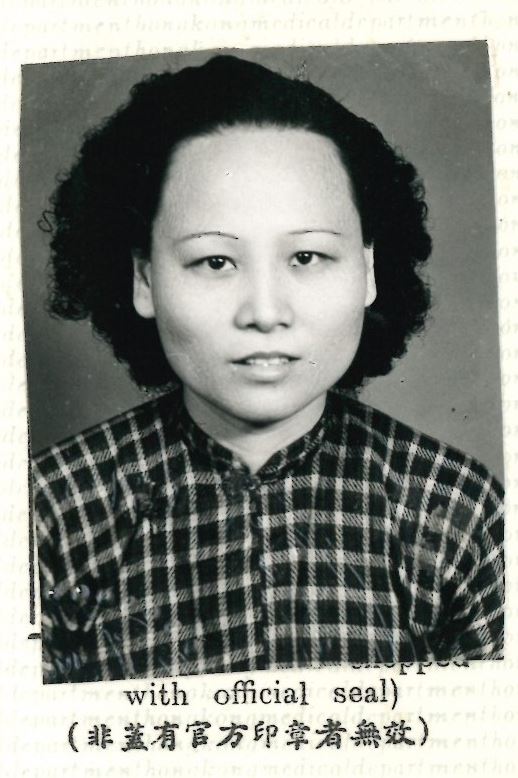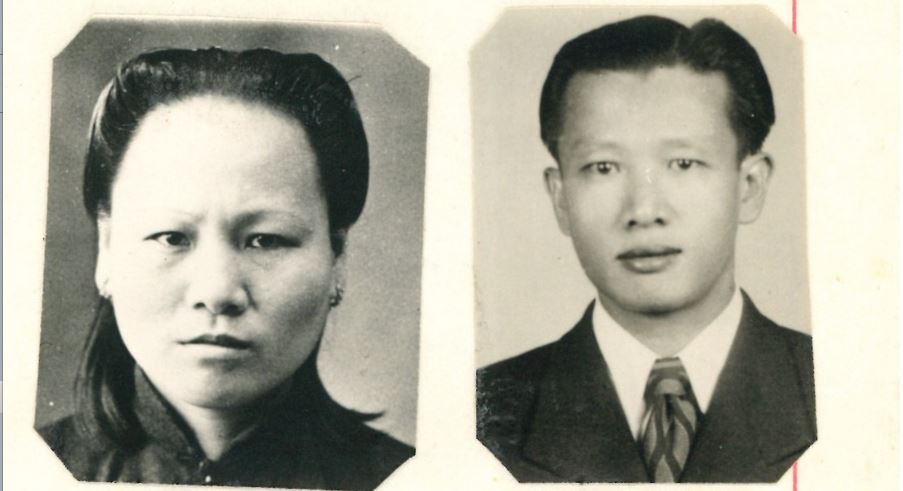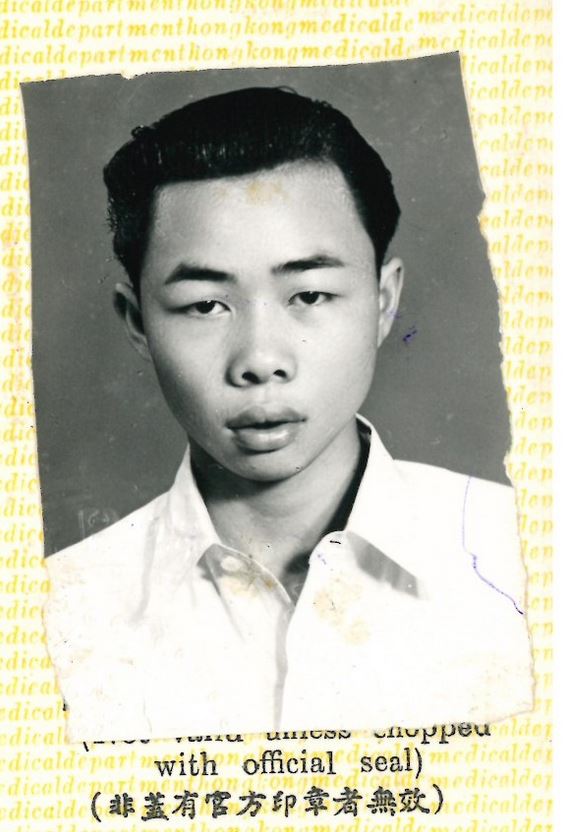By Raymond Douglas Chong, AsAmNews Staff Writer
Chinese War Brides
During World War II, thousands of Chinese American men honorably served the American armed forces. Under the War Brides Act in 1946, Congress allowed Chinese wives of Chinese American veterans to immigrate to America and to reunited with their husbands.
The arrival of Chinese war brides finally marked the end of the cruel bachelor society, a legacy of the 1882 Chinese Exclusion Act. Federal immigration officials, however, callously interrogated them about their family backgrounds and marital relationships before allowing them to immigrate.
Unfortunately, for Bak Teung Eng, an Army veteran, the arrival of Bick Ha Leong, his beloved Chinese war bride, ended in her suicide.
Background
Bak Teung was born on August 13, 1912 in the Toy Shan District of Kwantung. He was the son of Suey Ng, a native American. He was admitted to the United States at Boston, Massachusetts, on August 31, 1921.
Bak Teung departed on April 8, 1932, from Seattle, Washington, to China. He married Bick Ha Leong with the help of a matchmaker on May 30, 1932 at Gong Jew Lay. Bick Ha, born June 10, 1916, was from Nor Pone Lay. Tuck Lung Eng, their son, was born on October 1, 1933. Bak Teung returned to America on December 29, 1933.
Bak Teung was inducted in the American Army on May 30, 1941, at Camp Upton, New York. He worked as a cook while trained to shoot a rifle. He was honorably discharged on October 29, 1945, with the rank of Sergeant, at Camp Lee, Virginia.
By 1948, Bak Teung worked as a waiter at Dragon’s Den, a Chinese & American restaurant, along the Boardwalk at Atlantic City, New Jersey.
Immigration
From the Port of Hong Kong, Bick Ha and Tuck Lung arrived at Port of San Francisco, aboard the S.S. General William H. Gordon, a steamer, on June 30, 1948. They were separately detained at detention quarters of the San Francisco Immigration Station within the United States Appraisers Building at 630 Sansome Street in downtown. Law Offices of Chow and Sing was their immigration attorney.
On July 20, 1948, an inspector, with stenographer and interpreter, interviewed Bick Ha. On August 4, 1948, at 70 Columbus Street, New York City, an examining officer interviewed Bak Teung. The federal immigration officials found discrepancies in their testimonies. These discrepancies raised suspicion about their alleged relationships. Key issues were: wedding ceremony; birth of their son; name of their son, schooling of their son; names of relatives; relationship with Bak Teung’s twin brother, Eng Yau, including his wife and son.
On August 11, 1948, Joseph Hertogs, Assistant Chief, notified Chow and Sing: “As attorney of record in the above-named case, you are hereby notified that since the applicants do not appear to clearly and beyond a doubt entitled to enter the United States, such applicants have been detained for further examination by a Board of Special Inquiry.”
With a backlog of cases, on September 17, 1948, the Board of Special Inquiry met a stressed Bick Ha. She refused to testify until her husband arrived at the meeting. She had not eaten for several days and was too ill to testify
On September 20, 1948, she was briefly interrogated by the chairman: Question. What is your name? Answer. Leung Bick Ha. Question. You are advised that your attorney, Jack Sing, has notified this Board that your alleged husband, Eng Bak Teung, will arrive in San Francisco by plane tomorrow. Do you understand? Answer. Yes. Question: When you appeared before this Board last Friday, you stated off the record, that you had not eaten for several days and were too ill to testify. Do you feel sufficiently strong to testify at this time? Answer: No, I have not eaten over the weekend because I cannot swallow food.Chinese Exclusion Act Case File of Leong Bick Ha
Suicide
Bick Ha was taken to detention quarters. At the hospital, a Public Health doctor treated her nervous condition with sedatives. She stayed in a semi-private room with other Chinese women.
On about 2:00 AM, September 21, 1948, alerted by another Chinese woman, Celia Temple, security officer, found a blocked lavatory. When she entered, Bick Ha had committed suicide by hanging from a rod in the shower. Albert Murphy, another security officer, cut her down and laid her on the floor. Attempts to revive her proved futile. The coroner removed her body at 3:45 AM.
Federal immigration officials interviewed White staff and investigated her suicide. But they did not get statements from any Chinese women. They recognized the poor conditions at San Francisco Immigration Station. They considered its relocation to the Tanforan Naval installation in San Bruno. By 1954, they closed it.
Aftermath
On September 27, 1948, a Board of Special Inquiry resumed the meeting. They denied admission and ruled exclusion for Tuck Lung, the son of Bick Ha and Bak Teung, but allowed his parole. After posting of $1,000 bond, he was released on September 29, 1948.
On November 19, 1948, the Assistant Commissioner affirmed their decision. Board of Immigration Appeals dismissed the appeal. Immigration officials demanded Tuck Lung to appear for his deportation on April 13, 1949. Chong and Sing requested a stay, pending final appeal.
On February 26, 1951, the United States District Court of District of Columbia made a declaratory judgment that Tuck Lung Eng was an American citizen. He died on December 7, 2000, in Glassboro, New Jersey.
Bak Teung Eng married Helen Esther Lui of Philadelphia, Pennsylvania. They raised their children. He died on April 23, 1988 in Philadelphia.

Finale
The suicide of Bick Ha Leung is a tragic reminder that American immigration practices sadly mistreated Chinese war brides. For Bak Teung Eng, husband, and Tuck Lung Eng, son, their bitter lives in America were utterly haunted by her suicide.
AsAmNews has Asian America in its heart. We’re an all-volunteer effort of dedicated staff and interns. Check out our new Instagram account. Go to our Twitter feed and Facebook page for more content. Please consider interning, joining our staff, or submitting a story or making a contribution.





